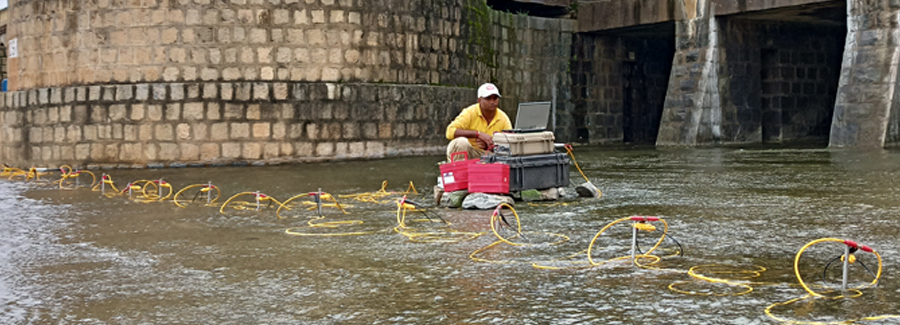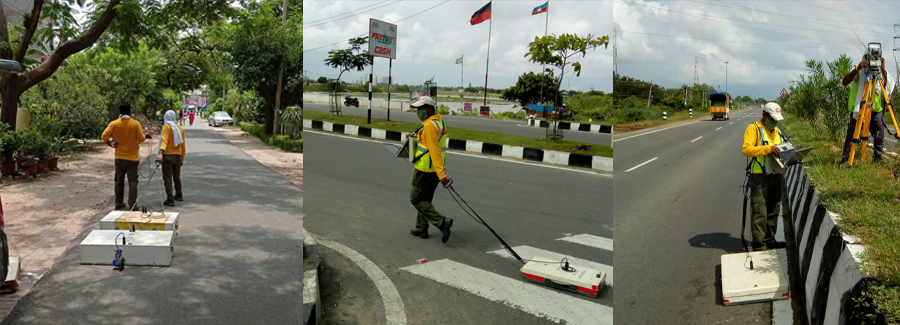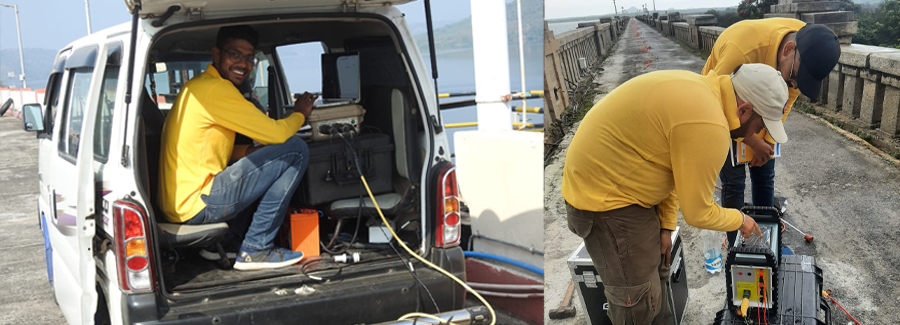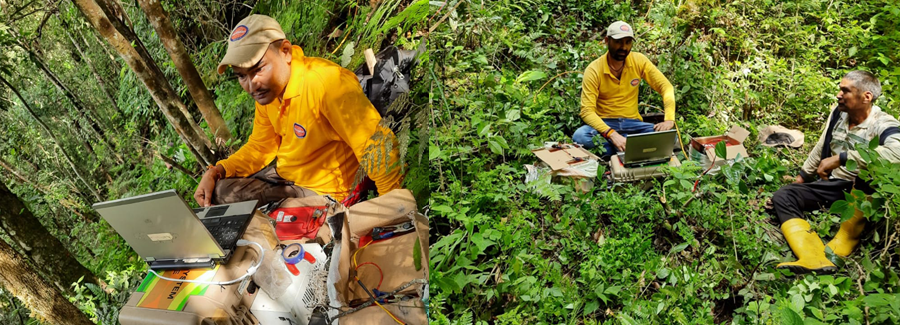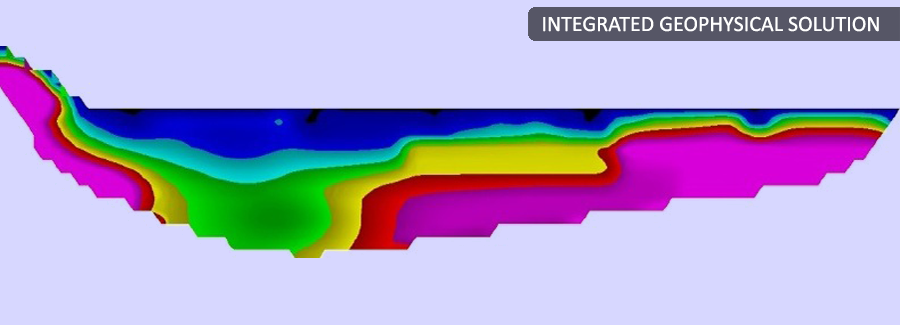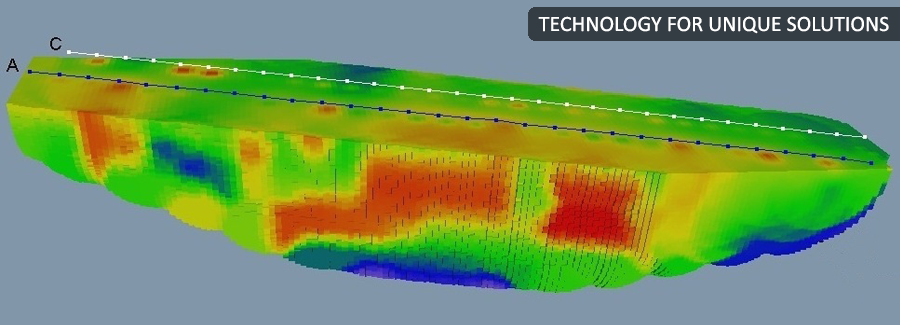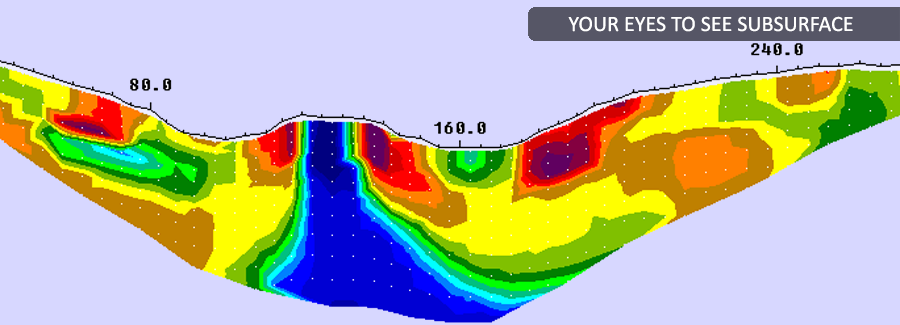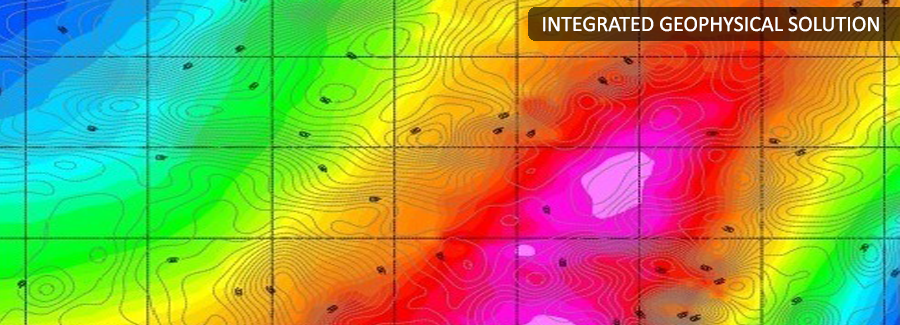Induction Locator
Back to TechniquesDetection of Live Power Cables & Telecom cables
Radio-detection uses the principles of electromagnetism to detect underground utilities. This principle works on the basis that a current flowing along a conductor creates a magnetic field, which extends around the conductor in concentric circles. A receiver coil can be used to detect the amplitude of this magnetic field. The amplitude varies depending on the position and orientation of the receiver within the field. The amplitude is maximum when the receiver is in line with the field and directly above the conductor. Moving the receiver from side to side enables to follow the maximum signal response and, therefore, the line of the buried utility. Both active and passive methods are used to ensure all possible detectable utilities are located.
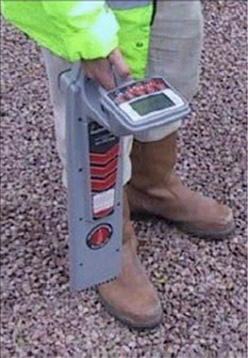
Active Methods
An active signal is a signal that has been artificially generated by an external source. Active radio-detection methods can allow different services such as BT and electric to be individually identified. Active methods involve the use of a transmitter. The transmitter can either be used for direct connection or for induction. Direct connection involves the application of an active signal to a conductor using a clamp. Induction involves a signal being radiated from the internal antenna of the transmitter, which is induced by any conductor in the vicinity and re-radiated. Generally, 8, 33 or 65 KHz frequencies are used. It is often possible to determine the depth of the service in this mode.
Passive Methods
A passive signal is a signal that occurs naturally on a buried conductor. Passive radio detection methods will provide an indication about services being present underground. Passive methods use the electro-magnetic fields already present around the underground utility to locate them.
Two modes are generally used:
- Power - detects 50-60 Hz energy present on most buried conductors
- Radio - detects re-radiated radio energy often present on conductors; depth cannot be determined in this mode
The radio-detection method, coupled with GPR, provides excellent data on underground utility network.



